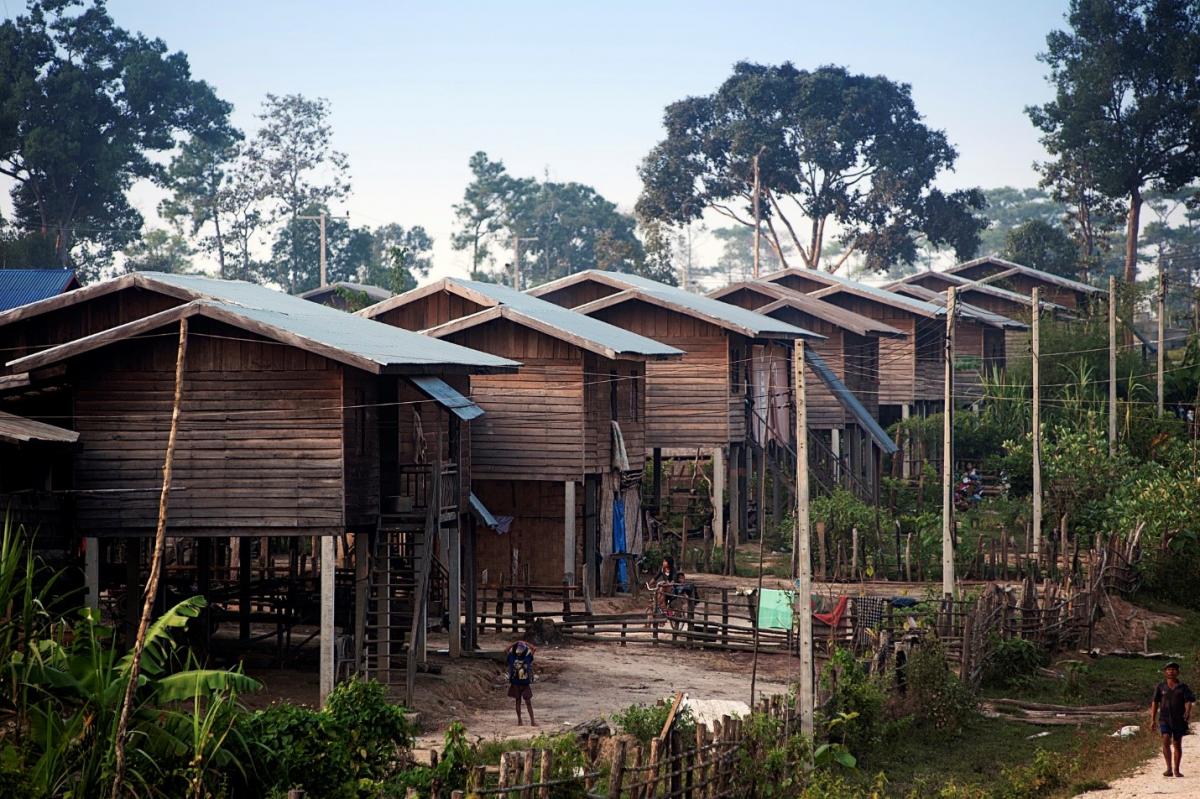 Resettlement village, Nakai Plateau, Khammoune Province, Lao PDR. Photo Credit: Stanislas Fradelizi/World Bank.
Resettlement village, Nakai Plateau, Khammoune Province, Lao PDR. Photo Credit: Stanislas Fradelizi/World Bank.
A new FCPF-financed study explores options for protecting customary land tenure in Lao People’s Democratic Republic (Lao PDR). Entitled “An Assessment of Customary Tenure Systems in the Lao PDR”, the study assesses the current state of customary land tenure systems in Lao PDR, paying particular attention to potential gaps in these efforts. The report provides a comprehensive set of recommendations for Lao PDR’s government agencies, as well as civil society organizations, development partners, and academics involved in land governance and customary tenure.
According to the government of the Lao People’s Democratic Republic (Lao PDR) only 1.5 of the country’s approximately 3.5 million land plots have been registered so far, meaning as many as half of the country’s land holders face tenure insecurity and a greater risk of losing their lands. Tenure insecurity not only constrains the country’s overall development, but also makes it harder for land holders to make changes that advance climate adaptation and mitigation efforts, and biodiversity conservation.
Customary land tenure refers to a set of local rules and norms that govern allocation, use, access, and transfer of land, and remains the most prevalent system of land tenure in Lao PDR. While customary land tenure systems are widely accepted and adhered to by local communities, they are not always recognized by governments or formalized in law. Some forms of customary rights are recognized by the 2020 Land Law of Laos, but their registration is yet to be fully implemented. There is an increasingly urgent need for full implementation as the country’s land sector evolves rapidly with expanding commercial land investments, extensive infrastructure development, increased smallholder commercial agriculture, and overall greater commodification of land.
A new study from the World Bank’s Urban Resilience and Land Global Practice and financed by the Forest Carbon Partnership Facility (FCPF), provides recommendations for Lao PDR’s government agencies, as well as civil society organizations, development partners, and academics involved in land governance and customary tenure. These recommendations address ways to strengthen and protect customary land tenure, while improving land rights recognition and formalization.
To form these recommendations, the study assessed the current state of customary land tenure systems in Lao PDR and analyzed past efforts to improve customary tenure recognition and formalization, paying particular attention to potential gaps in these efforts and how the government contributed.
The study found that customary systems that are insecure or in transition may benefit more from formalization than systems that are functioning well, however stringent social safeguards are necessary to ensure that formalization does not precipitate unintended consequences such as distressed land sales or elite capture. The study’s recommendations include taking action to expand legal education and community mobilization around land rights issues, including customary land claims as part of land adjudication processes, addressing practices in customary tenure systems that discriminate against women, educating policy makers and development partners to bring about informed policy design, and improving governance of commercial investments in land.
The valuable insights from this study advance a broader initiative by the FCPF to provide technical assistance for the World Bank’s ongoing and upcoming projects in Laos where increased awareness of the risks associated with customary land rights could mitigate social and environmental risks. These projects include two FCPF-supported programs: the Lao Landscapes and Livelihoods Project and the FCPF Carbon Fund ERPA, linked to the Northern Lao Governance, Forest Landscapes and Livelihood Program (GFLL).
As a follow-up of the study, the World Bank, FCPF, and the Germany Agency for International Cooperation (GIZ) are hosting an East Asia and Pacific regional conference on customary and forest area tenure in November 2022 in Vientiane, Lao PDR. The objective of the conference is to support the governments of Lao PDR, Philippines, and Indonesia in their ongoing processes to recognize, formalize, and register customary land rights, and share lessons learned from different country contexts.
Explore more of the FCPF’s growing knowledge repository on the topic of customary land tenure by referring to two recent studies co-financed with the EnABLE fund, on gender equity in forest and land tenure, and strengthening collective land tenure rights.
